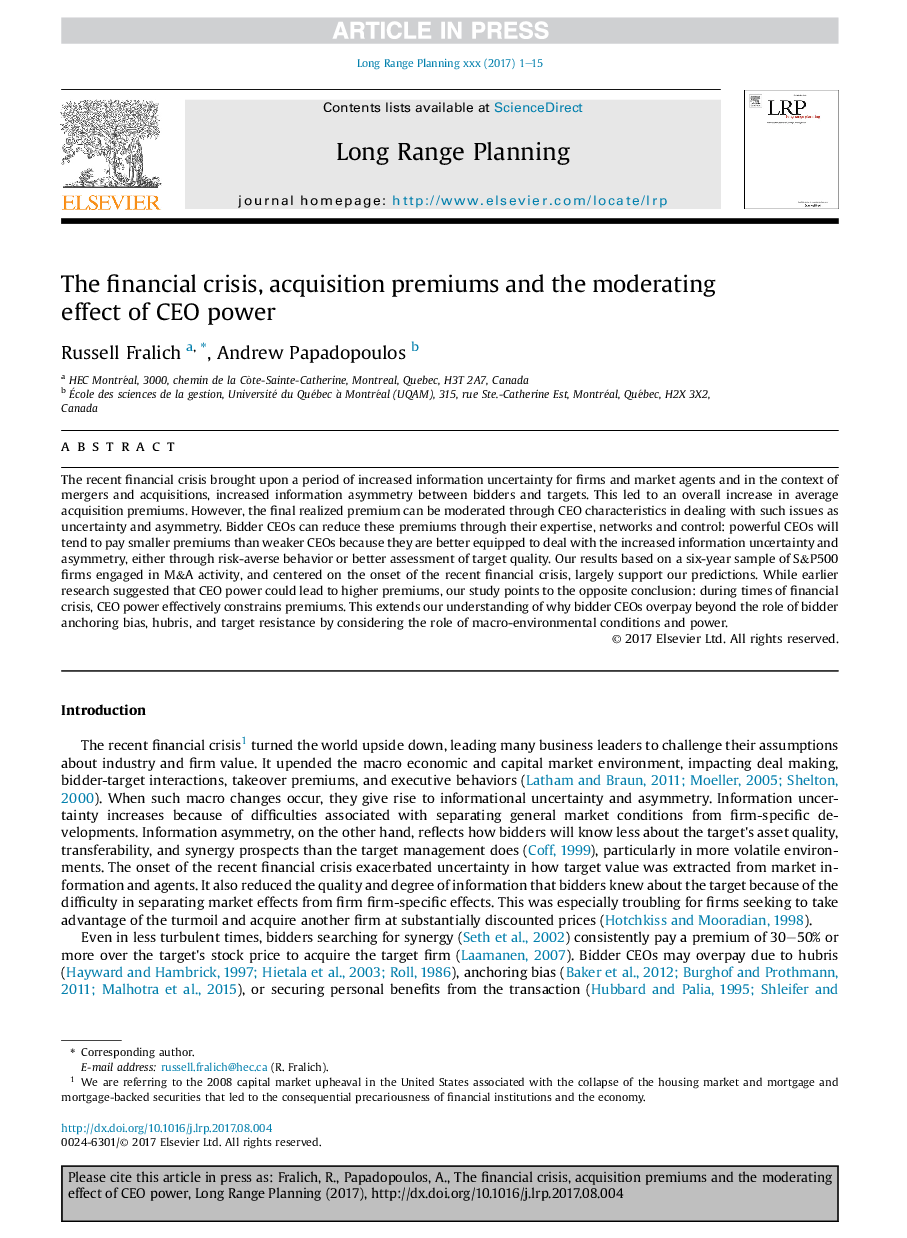| Article ID | Journal | Published Year | Pages | File Type |
|---|---|---|---|---|
| 7426787 | Long Range Planning | 2018 | 15 Pages |
Abstract
The recent financial crisis brought upon a period of increased information uncertainty for firms and market agents and in the context of mergers and acquisitions, increased information asymmetry between bidders and targets. This led to an overall increase in average acquisition premiums. However, the final realized premium can be moderated through CEO characteristics in dealing with such issues as uncertainty and asymmetry. Bidder CEOs can reduce these premiums through their expertise, networks and control: powerful CEOs will tend to pay smaller premiums than weaker CEOs because they are better equipped to deal with the increased information uncertainty and asymmetry, either through risk-averse behavior or better assessment of target quality. Our results based on a six-year sample of S&P500 firms engaged in M&A activity, and centered on the onset of the recent financial crisis, largely support our predictions. While earlier research suggested that CEO power could lead to higher premiums, our study points to the opposite conclusion: during times of financial crisis, CEO power effectively constrains premiums. This extends our understanding of why bidder CEOs overpay beyond the role of bidder anchoring bias, hubris, and target resistance by considering the role of macro-environmental conditions and power.
Related Topics
Social Sciences and Humanities
Business, Management and Accounting
Business and International Management
Authors
Russell Fralich, Andrew Papadopoulos,
